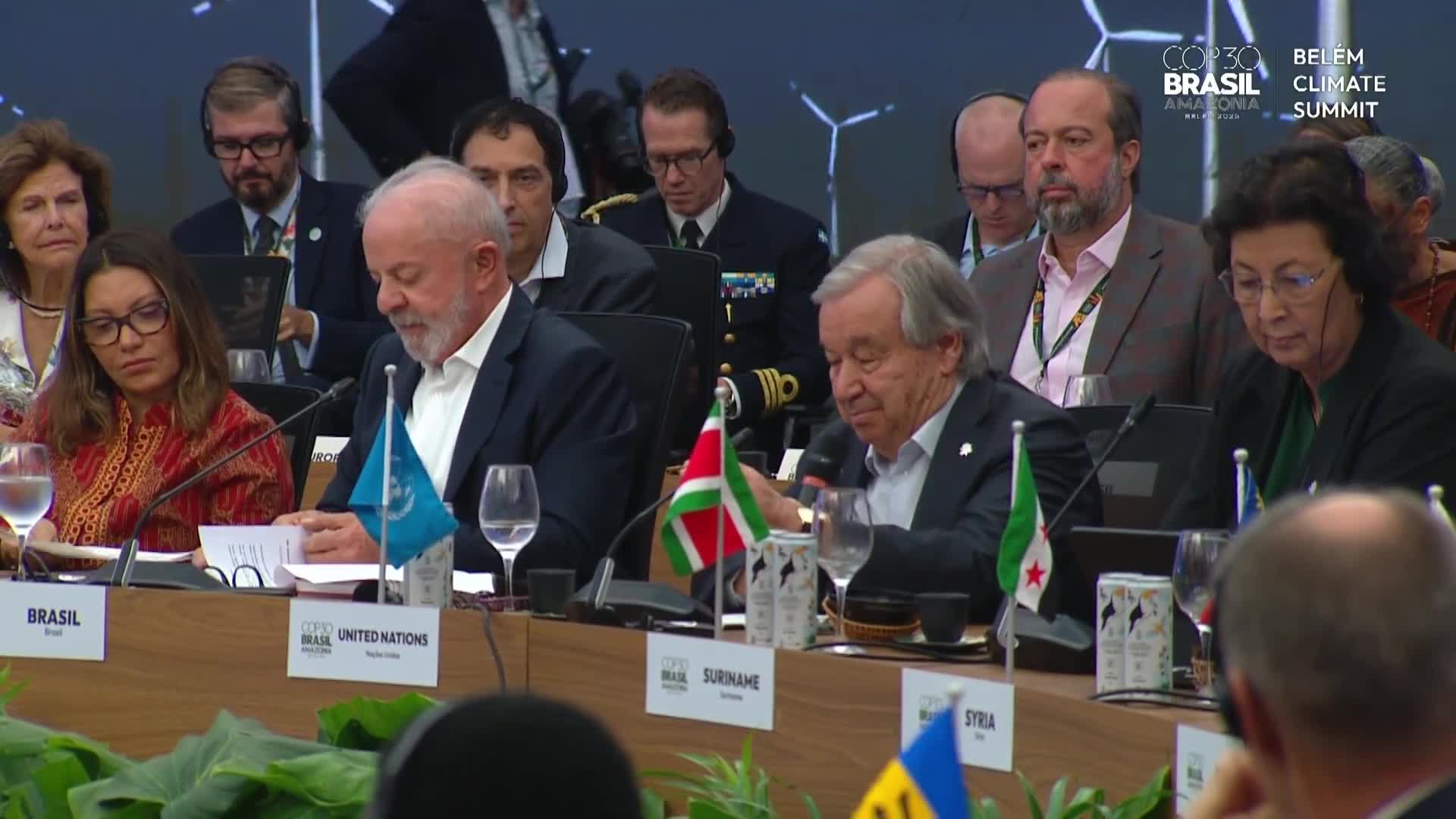Lula da Silva urges faster global shift to renewables, calls for five-point plan
Get AI-powered insights, summaries, and transcripts
Subscribe
Summary
In an international address, President Lula da Silva urged accelerated renewable deployment to meet COP28 goals, warned that current commitments still risk overshooting 1.5°C, and outlined five priorities: policy alignment, equity for workers, grid and storage investment, clean power for new demand, and scaled finance for developing countries.
President Lula da Silva urged world leaders to speed the transition to renewable energy and back it with policy, finance and fairness, saying recent investment and job gains show the route to a cleaner economy but that delivery is lagging.
"Last year, 90% of new power capacity came from renewables," he said, and added that "Global investment in clean energy reached 2,000,000,000,000 US dollars, 800,000,000,000 more than fossil fuels." Lula argued those shifts already make renewables the cheapest source of new electricity in nearly every country and stressed the jobs case: "Every dollar invested in renewables creates 3 times more jobs than a dollar invested in fossil fuels."
Context: the speech cited commitments agreed at COP28 to "transition away from fossil fuels in a just, orderly, and equitable manner and to triple renewable energy capacity and double energy efficiency by 2030." Lula warned that even if national pledges are implemented the world risks warming well above 2°C and said scientists expect overshoot of 1.5°C "starting at the latest in the early 20thirties," making rapid action this decade crucial.
Policy priorities: Lula offered a five-point program. First, he called for aligning laws, policies and incentives with a just energy transition and for eliminating fossil-fuel subsidies that "distort markets and lock us into the past." Second, he urged centering equity and supporting workers and communities that still depend on coal, oil and gas with training, protections and new opportunities "especially for young people and women." Third, he said governments must invest in grids, storage and efficiency to integrate the surging share of renewable power. Fourth, he said new electricity demand — including from data centers driving the AI revolution — should be met with clean power so "technology must be part of the solution, not a new source of strain." Fifth, he urged unlocking finance at scale for developing countries, noting that "Africa receives 2% of global energy investments," and called for international cooperation to reduce the cost of capital and crowd in private investment.
Lula framed the goals as shared but differentiated: "The pathways for each country may look different, but the destination must be the same: a net 0 world followed consistently by a net negative world powered by renewables," he said, urging technology transfer and calibrated support for countries with differing capacities and dependencies.
He closed by saying "The fossil fuel age is ending. Clean energy is rising. Let us make the transition fair, fast, and final." The speech concluded with brief thanks and no formal action announced.
